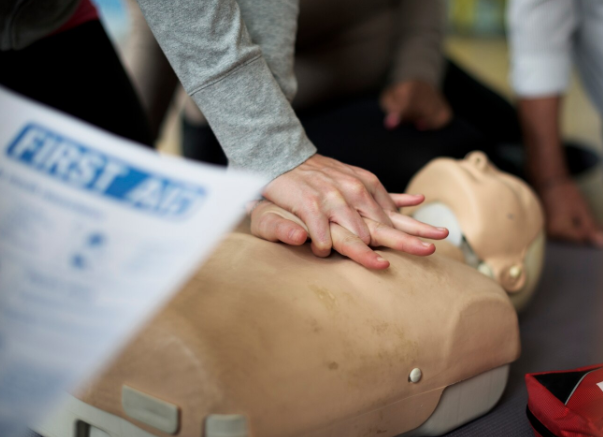SIL in Melbourne: Pros and Cons of Living in a Group Home
Supported Independent Living (SIL) provides a good balance between living independently and receiving the best support. If you are looking for homes designed for SIL in Melbourne, you must start with weighing the pros and cons of group homes. Because these types of homes are often the most available with the NDIS providers.
And to prevent misaligning your NDIS plan for the sake of available means, you must realise everything about SIL group homes. In this blog, you will learn the pros and cons of SIL shared homes in detail. So, continue reading the blog till the end before deciding on the best option.
Understanding SIL Group Homes
Shared living under SIL support is an accommodation for more than 1 person. This allows your loved one to live with other NDIS participants sharing similar disability needs. Precisely, a shared home has common washrooms, kitchen, or living room and a freedom to live in the individual bedrooms.
Besides disability accommodation, an SIL support lets you receive help from a dedicated support worker. You must expect assistance in household chores, personal hygiene, daily commutes, NDIS plan management, and administering medication and nursing for 24/7 time.
NDIS providers offer both in-home and shared homes for SIL in Melbourne. It is important to discuss your priorities with your concerned support coordinator.
Pros of SIL Shared Homes
Here are the benefits of accessing the SIL shared living homes.
● Access to Customised Support:
Even though you are living with housemates, you have the best care and assistance that addresses your concerns and priorities. SIL shared home runs under the supervision of trained support workers who align the SIL services with your NDIS plan. For example, house help allows you to learn every chore for an independent life. Similarly, meal preparation tasks accommodate your dietary needs.
● Encourages Sense of Community:
Shared living arrangements under SIL in Melbourne encourages people living with similar disability goals to live together. This is truly an empowering living arrangement to socialise and be friends with like-minded people. As a disability of any kind takes away your individuality, shared living spaces combat the feelings of isolation and depression.
● Allows You to Share Living Costs:
The cost of living in Melbourne is soaring high with each passing year. Sharing living space is a cost-cutting assistance as it lets you distribute the costs of rent, utilities, groceries, or personal care needs with others.
As SIL funding does not cover the daily living costs, splitting the daily costs is immensely beneficial. As compared to individual homes for SIL in Melbourne, affordable shared homes bring you more financial freedom.
● Offers a Skill Development Opportunity:
You learn the essential life skills to increase your independence over time. Support workers extend support with teaching how to do everyday tasks, manage everyday finances, plan a budget, use public transport specially reserved seats, and cook dishes on your own. The intent behind SIL accommodation is to empower you to achieve everything in your life, no matter the type of disability you are living with.
● Gives an Access to Assistive Aids:
Shared NDIS accommodation is equipped with necessary and multi-purpose disability aids and equipment. If your loved one has limited mobility or sensory issues, SIL accommodation aims to provide the best comfort, safety, and independence.
You can access a wheelchair, grab rail, adjustable bed rails, or sit-to-stand transfer equipment for living independently. In addition, hearing aids, speech recognition tools, or other sensory devices are a part of the support too.
Cons of SIL Shared Homes
Now let’s figure out the few drawbacks of receiving SIL shared accommodation from your NDIS provider.
● Limited Privacy:
If you are used to living alone, staying in a shared home can be a bit difficult. Primarily because you need to adapt to the changing routines, preferences, or remain optimistic during sudden emergencies.
So, if you value quiet time, it is best to look for at-home SIL in Melbourne or request an independent disability accommodation.
● Compatibility with Housemates:
While many providers with group homes consider compatibility as a priority, some do not. You might across issues over minor personality incompatibility.
For instance, you might have a strict sleeping schedule but a person living next to you might want to enjoy a party at night. Minor differences in schedules and behaviour is a problem, however, compromising on some aspects that do not affect your health is the only solution.
● Restrictions on Independence:
While the majority of group homes promote skill development, some of them can impose restrictions on your independence. For example, you might have to follow house rules, a structured schedule for participating in recreational activities, or irregular staff presence which might impact your disability goal. This limits you to follow the planned routines each day.
It is better to discuss your preferences and needs before considering SIL with a person-centric NDIS provider.
Are SIL homes a Right Fit?
Now that you are familiar with the pros and cons of group SIL homes, you must answer the following questions in the next step.
- How much privacy do you need?
- Are you comfortable living with others?
- Do you need round-the-clock assistance or minimal support?
- Do you require home modifications?
- How do you feel about sharing living costs?
If group homes don’t fit your preferences, you must consider at-home support or independent homes. Moreover, if you require a highly accessible home for complex needs, Specialist Disability Accommodation (SDA) is your right living choice.
Final Words
We hope you found this blog useful. As you see, SIL in Melbourne, especially group homes, are entirely a choice between your personal and disability needs.
If you thrive in social settings, group homes are definitely worth the funding and time. However, if you value privacy and independent lifestyle, then alternatives like in-home or specialised SIL homes are your best options.
Take the next step, consider the SIL group homes with a reputable NDIS provider like Nexa Care in Melbourne.







